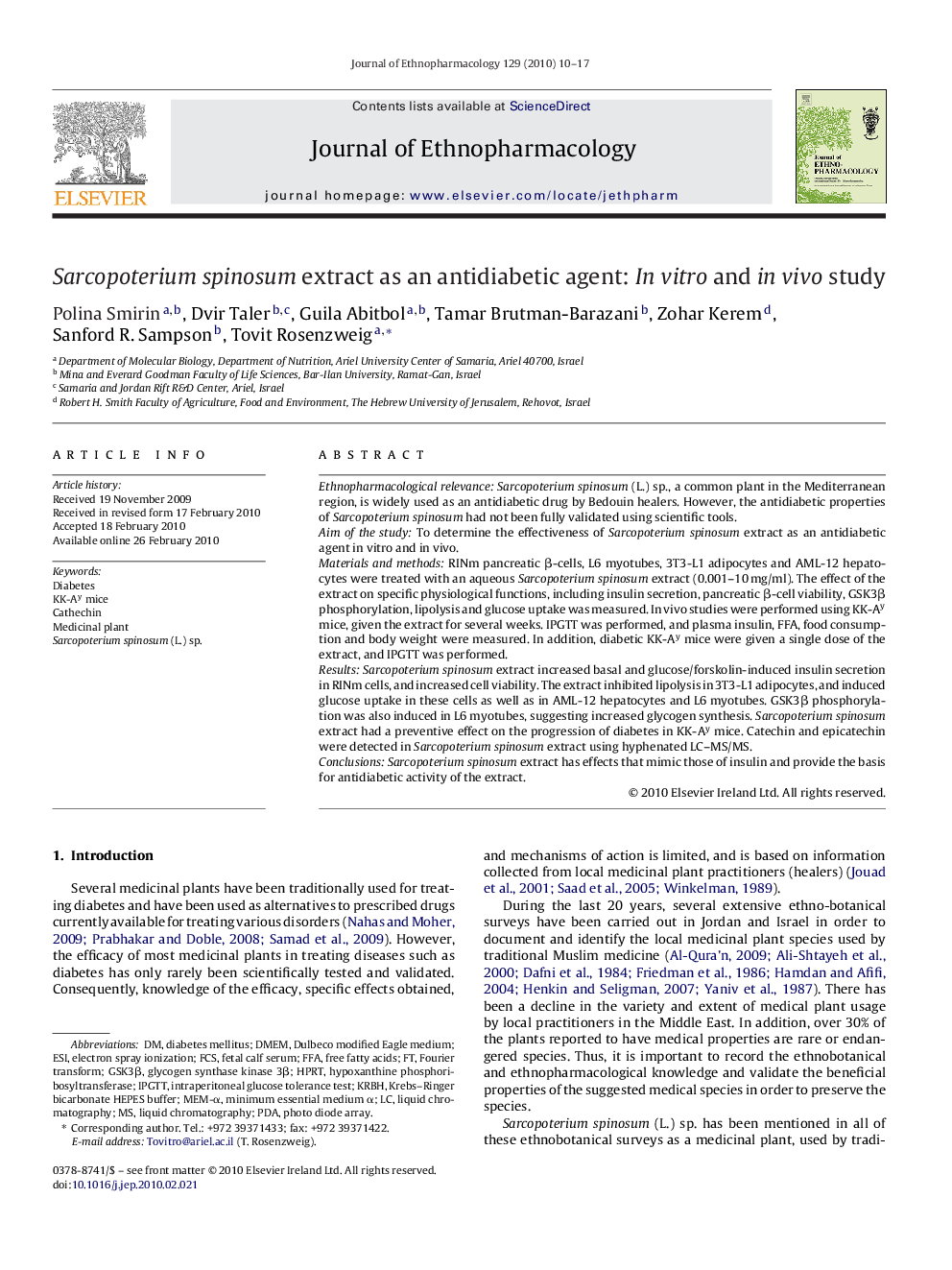| Article ID | Journal | Published Year | Pages | File Type |
|---|---|---|---|---|
| 2546333 | Journal of Ethnopharmacology | 2010 | 8 Pages |
Ethnopharmacological relevanceSarcopoterium spinosum (L.) sp., a common plant in the Mediterranean region, is widely used as an antidiabetic drug by Bedouin healers. However, the antidiabetic properties of Sarcopoterium spinosum had not been fully validated using scientific tools.Aim of the studyTo determine the effectiveness of Sarcopoterium spinosum extract as an antidiabetic agent in vitro and in vivo.Materials and methodsRINm pancreatic β-cells, L6 myotubes, 3T3-L1 adipocytes and AML-12 hepatocytes were treated with an aqueous Sarcopoterium spinosum extract (0.001–10 mg/ml). The effect of the extract on specific physiological functions, including insulin secretion, pancreatic β-cell viability, GSK3β phosphorylation, lipolysis and glucose uptake was measured. In vivo studies were performed using KK-Ay mice, given the extract for several weeks. IPGTT was performed, and plasma insulin, FFA, food consumption and body weight were measured. In addition, diabetic KK-Ay mice were given a single dose of the extract, and IPGTT was performed.ResultsSarcopoterium spinosum extract increased basal and glucose/forskolin-induced insulin secretion in RINm cells, and increased cell viability. The extract inhibited lipolysis in 3T3-L1 adipocytes, and induced glucose uptake in these cells as well as in AML-12 hepatocytes and L6 myotubes. GSK3β phosphorylation was also induced in L6 myotubes, suggesting increased glycogen synthesis. Sarcopoterium spinosum extract had a preventive effect on the progression of diabetes in KK-Ay mice. Catechin and epicatechin were detected in Sarcopoterium spinosum extract using hyphenated LC–MS/MS.ConclusionsSarcopoterium spinosum extract has effects that mimic those of insulin and provide the basis for antidiabetic activity of the extract.
Graphical abstractFigure optionsDownload full-size imageDownload as PowerPoint slide
